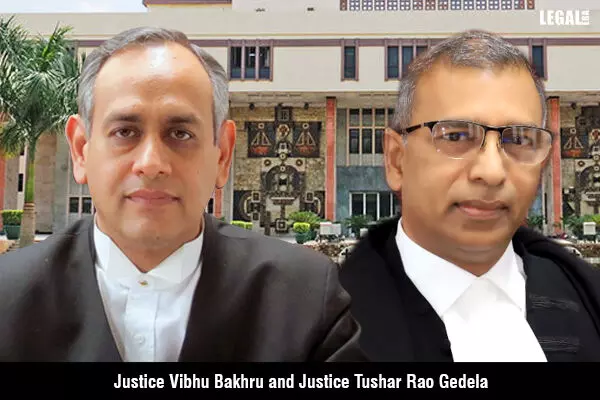- Home
- News
- Articles+
- Aerospace
- Artificial Intelligence
- Agriculture
- Alternate Dispute Resolution
- Arbitration & Mediation
- Banking and Finance
- Bankruptcy
- Book Review
- Bribery & Corruption
- Commercial Litigation
- Competition Law
- Conference Reports
- Consumer Products
- Contract
- Corporate Governance
- Corporate Law
- Covid-19
- Cryptocurrency
- Cybersecurity
- Data Protection
- Defence
- Digital Economy
- E-commerce
- Employment Law
- Energy and Natural Resources
- Entertainment and Sports Law
- Environmental Law
- Environmental, Social, and Governance
- Foreign Direct Investment
- Food and Beverage
- Gaming
- Health Care
- IBC Diaries
- In Focus
- Inclusion & Diversity
- Insurance Law
- Intellectual Property
- International Law
- IP & Tech Era
- Know the Law
- Labour Laws
- Law & Policy and Regulation
- Litigation
- Litigation Funding
- Manufacturing
- Mergers & Acquisitions
- NFTs
- Privacy
- Private Equity
- Project Finance
- Real Estate
- Risk and Compliance
- Student Corner
- Take On Board
- Tax
- Technology Media and Telecom
- Tributes
- Viewpoint
- Zoom In
- Law Firms
- In-House
- Rankings
- E-Magazine
- Legal Era TV
- Events
- Middle East
- Africa
- News
- Articles
- Aerospace
- Artificial Intelligence
- Agriculture
- Alternate Dispute Resolution
- Arbitration & Mediation
- Banking and Finance
- Bankruptcy
- Book Review
- Bribery & Corruption
- Commercial Litigation
- Competition Law
- Conference Reports
- Consumer Products
- Contract
- Corporate Governance
- Corporate Law
- Covid-19
- Cryptocurrency
- Cybersecurity
- Data Protection
- Defence
- Digital Economy
- E-commerce
- Employment Law
- Energy and Natural Resources
- Entertainment and Sports Law
- Environmental Law
- Environmental, Social, and Governance
- Foreign Direct Investment
- Food and Beverage
- Gaming
- Health Care
- IBC Diaries
- In Focus
- Inclusion & Diversity
- Insurance Law
- Intellectual Property
- International Law
- IP & Tech Era
- Know the Law
- Labour Laws
- Law & Policy and Regulation
- Litigation
- Litigation Funding
- Manufacturing
- Mergers & Acquisitions
- NFTs
- Privacy
- Private Equity
- Project Finance
- Real Estate
- Risk and Compliance
- Student Corner
- Take On Board
- Tax
- Technology Media and Telecom
- Tributes
- Viewpoint
- Zoom In
- Law Firms
- In-House
- Rankings
- E-Magazine
- Legal Era TV
- Events
- Middle East
- Africa
Delhi High Court: Jurisdiction For Appeals Under Section 260A Of IT Act Lies With High Court Where AO Passes Assessment Order

Delhi High Court: Jurisdiction For Appeals Under Section 260A Of IT Act Lies With High Court Where AO Passes Assessment Order
The Delhi High Court has reaffirmed that the jurisdiction to entertain an appeal under Section 260A of the Income Tax Act, 1961, lies with the High Court within whose jurisdiction the Assessing Officer (AO) who passed the impugned assessment order is located.
Section 260A of the Income Tax Act allows an appeal to the High Court from an order made in appeal by the Appellate Tribunal. In the present case, the original assessment order was passed by the AO in Amritsar, who had added ₹4,37,046 to the assessee's income due to the disallowance of personal use expenditure.
The Principal Commissioner of Income Tax (PCIT) revised the order under Section 263, asserting that the assessment was prejudicial to the Revenue’s interest, directing the AO to conduct fresh inquiries. However, the Income Tax Appellate Tribunal (ITAT) ruled that the assessment was made in the name of a dissolved firm, thus allowing the assessee’s appeal, as an order passed in the name of a non-existent entity could not be revised under Section 263.
The Revenue approached the Delhi High Court, but the assessee raised an objection regarding territorial jurisdiction. The assessee argued that, as the original assessment order was passed in Amritsar, the Delhi High Court did not have jurisdiction over the appeal.
Agreeing with the assessee, the division bench of Justices Vibhu Bakhru and Tushar Rao Gedela ruled that since the appeal stemmed from an assessment order issued in Amritsar, the Delhi High Court did not have territorial jurisdiction. The Court cited the Supreme Court's judgment in Seth Banarsi Dass Gupta v. Commissioner of Income Tax (1978), which established that the High Court where the AO passed the assessment order holds jurisdiction for appeals under Section 260A.
Additionally, the Court referred to the Pr. Commissioner of Income Tax-I, Chandigarh v. M/s ABC Papers Ltd. (2022), in which the Supreme Court ruled that even if an assessee’s case is transferred to a different AO, the High Court within whose jurisdiction the original assessment was passed maintains jurisdiction over the appeal.
Despite the Revenue’s argument that the assessee could not raise the jurisdiction issue after approaching ITAT Delhi, the High Court maintained that if it is determined that the Court lacks jurisdiction, no other issues, including the jurisdiction of ITAT Delhi, would be examined.



